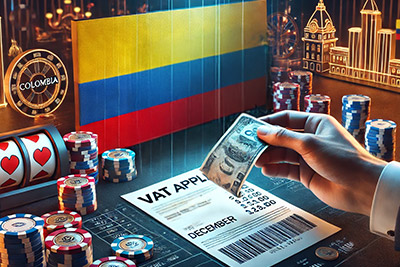
VAT Implementation and Industry Concerns
Under the new system, the taxable base is determined by dividing the deposited amount by 1.19. For example, a $100 deposit would incur approximately $16 in VAT, leaving around $84 for actual gameplay. Operators will be responsible for collecting and submitting the tax, with non-compliance potentially resulting in prison sentences ranging from 48 to 108 months and administrative sanctions.
Despite government assurances, concerns remain among industry stakeholders. No transition period has been provided, leaving operators scrambling to update their gaming systems and obtain recertification. Colombian gaming law mandates regulatory approval for system changes, meaning operators risk violating the law if they start collecting the tax before certification.
Enforcement and Foreign Operator Implications
The decree also empowers Coljuegos, Colombia’s gambling regulator, to block unlicensed gambling sites, including those facilitating unauthorized operations, payments, or advertising. Notably, Decree No. 175 mentions both local and foreign operators, despite Colombia banning unlicensed offshore gambling. Legal experts have called this reference “unusual”, questioning its implications.
The VAT’s Origins and Potential Permanency
Initially proposed in late 2024, the VAT measure was previously halted before being reintroduced under Article 213 of Colombia’s Political Constitution. This provision allows the president to enact emergency tax measures during a “state of internal commotion”, declared due to ongoing violence in the Catatumbo region, which has displaced 30,000 people.
Although the tax is set to expire in December 2025, legal experts, including Juan Camilo Carrasco, believe it could become permanent through future tax reforms. He warned, “We know that regarding taxes, nothing is more permanent than something that comes in temporarily.”
With enforcement set to begin, operators must quickly adapt, while industry experts debate the broader impact of this emergency taxation measure on Colombia’s regulated gambling sector.
Source:
Government Introduces New Tax Measures for State of Internal Commotion, Brigard Urrutia, February 14, 2025.



